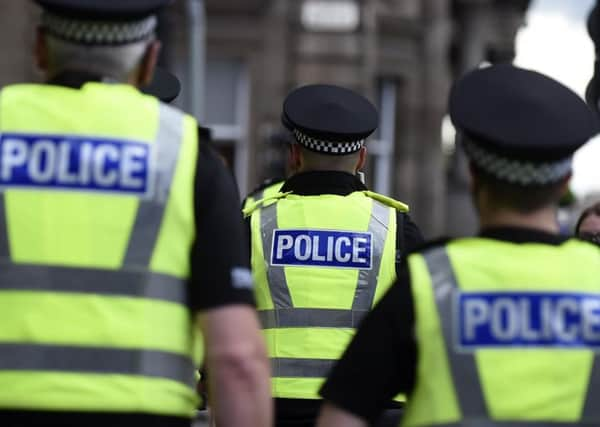Rise in Scots police officers in counselling for traumatic stress issues


Police Scotland bosses now say a survey of wellbeing among officers will be carried out next year, but that it remains a priority.
The cost of delivering trauma services to officers affected has also increased from less then £70,000 in 2016/17 to £114,000 two years later. The rise will come under the spotlight at today’s meeting of the Scottish Police Authority (SPA) board.
Advertisement
Hide AdAdvertisement
Hide AdA report states: “This is in line with trends seen in policing and is likely to increase further.
“If the resilience assessments are taken up more frequently, we anticipate an impact on the support numbers and costs.”
Liberal Democrat justice spokesman Liam McArthur said: “This is a stark reminder that officers and staff can experience life-changing incidents in the line of duty.
“It is so important, therefore, that the national force is fully equipped to help people when they need it.
“The justice secretary and police bosses have a responsibility to ensure officers’ welfare.”
PTSD is most commonly associated with military veterans as a result of their experience in combat and manifests itself in severe mental and emotional stress occurring as a result of injury or severe psychological shock.
The number of counselling sessions undertaken by Scots police officers has risen from 1,130 to 1,501 (33 per cent) since 2016/17, the figures also reveal. This included 963 telephone sessions, a rise of more than 200, as well as 464 face-to-face encounters. There were also 74 e-counselling sessions.
Mr McArthur said the last staff survey was carried out in 2015 and found widespread cynicism among officers to the force’s approach to their wellbeing.
Advertisement
Hide AdAdvertisement
Hide Ad“A repeat of this work cannot be put off any longer,” the Lib Dem MSP said.
“In the interests of transparency and good governance, we need to know whether officers and staff have confidence in their organisation and feel they have the resources and support required to do their job. That’s the only way of ensuring that improvements are made where necessary.”
Deputy Chief Constable Fiona Taylor said: “The wellbeing of our officers and staff is a priority and we have a range of support mechanisms in place.
“An engagement and wellbeing survey will be carried early next year. Response rates in the previous two surveys were lower than we had hoped for and we will be taking time to encourage as many people as possible to take part in the next one. In the meantime, we will continue to work closely with all our staff associations.”